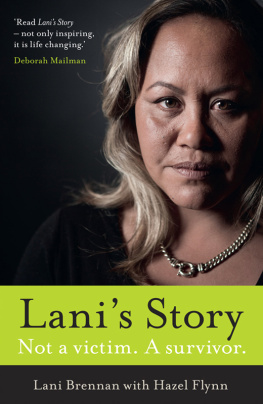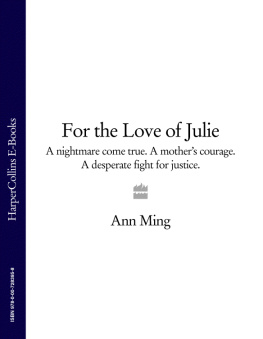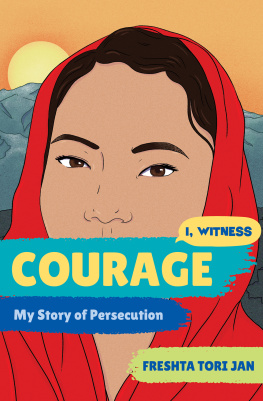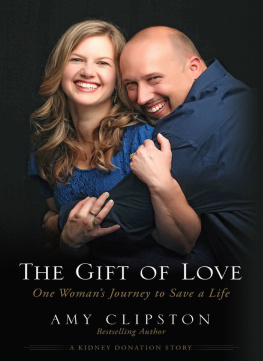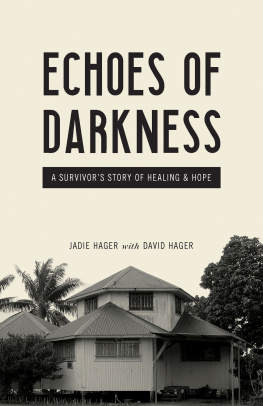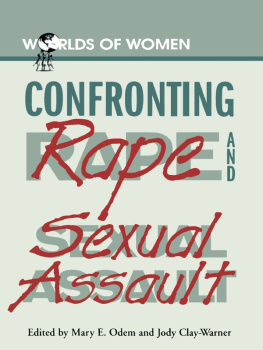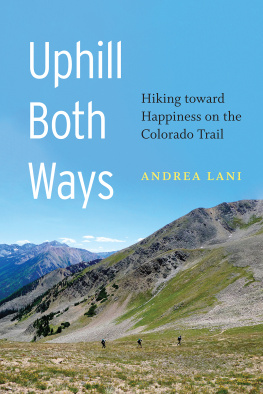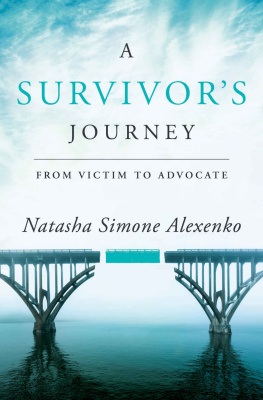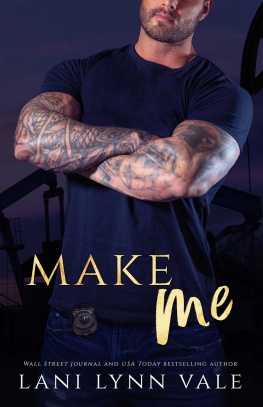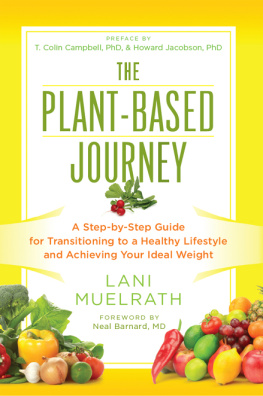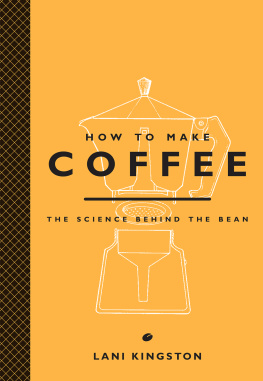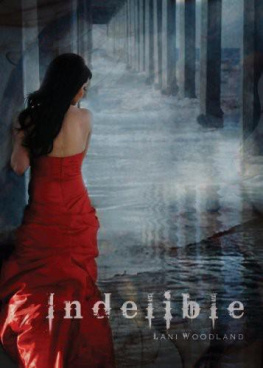HarperCollins Publishers
First published in Australia in 2013
This edition published in 2013
by HarperCollins Publishers Australia Pty Limited
ABN 36 009 913 517
harpercollins.com.au
Copyright Lani Brennan 2013
The right of Lani Brennan to be identified as the author of this work has been asserted by her under the Copyright Amendment (Moral Rights) Act 2000 .
This work is copyright. Apart from any use as permitted under the Copyright Act 1968 , no part may be reproduced, copied, scanned, stored in a retrieval system, recorded, or transmitted, in any form or by any means, without the prior written permission of the publisher.
HarperCollins Publishers
Level 13, 201 Elizabeth Street, Sydney NSW 2000, Australia
31 View Road, Glenfield, Auckland 0627, New Zealand
A 53, Sector 57, Noida, UP, India
7785 Fulham Palace Road, London W6 8JB, United Kingdom
2 Bloor Street East, 20th floor, Toronto, Ontario M4W 1A8, Canada
10 East 53rd Street, New York NY 10022, USA
National Library of Australia Cataloguing-in-Publication data:
Brennan, Lani.
Lanis story/Lani Brennan
978 0 7322 9348 2 (pbk.)
978 0 7304 9510 9 (epub)
Brennan, Lani.
Women Violence against Australia
Abused women Australia Biography
Indigenous women Violence against Australia Biography
Family violence Australia
Victims of family violence Australia
Women, Aboriginal Australian Social Conditions
Women, Aboriginal Australian Australia crimes against
362.82920994
Cover design by Matt Stanton, HarperCollins Design Studio
Cover image by Mark Rogers
This book is dedicated to the memory of all
those who lost their lives through domestic
violence, to all the other survivors out
there, and to those dedicated workers who
spend their days reaching out to people in
their time of greatest need.
I would like to acknowledge the traditional custodians of this land. I would also like to pay respect to the elders both past and present.
Somewhere in the distance I can hear a strange, high sound. It doesnt quite sound human. Whatevers making it is broken and barely alive, crying out in pain and fear. Theres defeat in there too. Whatever is making that noise doesnt have long to go. Im trying to figure it out. If I can just understand where its coming from, maybe I can help, but my thoughts are so heavy and slow. I have the urge to shake my head to help clear it but I cant; for some reason I cant seem to move. Slowly I start to work it out. Theres something stopping me moving, something pinning me down. I need to breathe. I cant breathe. Why cant I breathe?
All at once my eyes open and I understand. I cant move because he is on top of me, hes raping me. I cant breathe because he has his hands around my neck. No, thats not right not his hands, something else. I can see the end of it out of the corner of my eye. What is that thing? If only I could think. I know, its an electrical cord, a bright orange one and, oh god, hes pulling it tighter around my throat. Im going to die. But I cant die. I have to get out. I have to help the poor creature thats making that awful noise. Then just before I pass out again it comes to me. Its me. That inhuman sound is coming from me.
Ive done terrible things in my life, things I am deeply ashamed of. Ive had far, far more terrible things done to me. Ive suffered violence and abuse and degradation that no human being should suffer. But I am not a victim. I am a survivor.
When I was at my lowest point, thirteen years ago, if youd told me what my life would be like today I would have thought you were making a sick joke. Me, safe and happy, loved and loving, respected and worthy of respect? Theres no way that was possible. I believed the only way the torture would stop would be for me to die. I prayed to die. But I didnt die. I survived.
My life has changed so much that when I look back its almost as though those things happened to someone else. But everything Ive been through is woven into my soul. Knowing I had the strength, somehow, to survive all that, and to fight for justice thats the steel deep within me. And being able to love, not to be consumed by hate; being able to show my daughters how to grow strong and free from fear thats what gives shape to my life. Being able to help other people see that there is a way out of their misery thats my purpose on this earth.
My name is Lani, and this is my story.
Scientists are still arguing about what causes alcoholism and how big a role genes might play in it. Well, whether it is genetic or not, it runs through generations on both sides of my family.
My mother, Kathy, is a Maori woman who moved to Sydney from New Zealand when she was nineteen. She met my dad, Rory, in a pub at Bondi, both of them no doubt with a drink in hand. My dad had been through hell as a kid. His mum, my beloved nan, was a lifeline to me over and over again during the bad times, but shed been a desperate alcoholic when he was growing up.
My nan, Maureen, was white and was working as a barmaid at a Sydney pub, a waterside early opener, when she met my dads father, who was a Murri Aboriginal man originally from Cunnamulla in Queensland. He was already married with kids, but that didnt stop him hooking up with Maureen. She got pregnant, and he wanted nothing more to do with her.
My dad is dark-skinned, and given how much casual racism I still face on the streets now, I cant imagine what it would have been like for a white woman to have a son to an Aboriginal man back in the fifties. Pretty soon Maureen was permanently drunk, with periodic visits to Sydneys Callan Park Mental Hospital to receive electroshock treatment. She and Rory lived in a crowded flat along with her mother, Kathleen, and brother Fred. Maureen was drowning in alcohol and was often horrifically violent towards her son.
I guess its no wonder Rory ran off the rails early and stayed off them for many years. By the time he met young Kathy in Bondi in the late 1970s he was already a drunk, too. I still feel resentful about the damage Rorys father, my grandfather in name only, did to him by abandoning his child before birth and doing it again, years later.
(When I was about twelve, Rory called on the services of Link-Up, the great organisation that has helped so many Aboriginal people from the Stolen Generations reunite with their families. Through Link-Up, Dad got hold of his father, and arranged to go and see him. It turned out my grandfather lived in Sydney, just half an hours drive away. Not long after hed made contact, Dad took me and my sister along to meet him. We stayed in the car while Dad went into the club where his father was waiting. Rory told his father he had brought us along and that we wanted to meet him. Our grandfather came out to the car, asked us if we wanted a soft drink, brought us out one, and then told my dad to go away and never contact him again. So as well as rejecting his own son, he rejected his grandchildren too.)
Before they became parents, Rory and Kathy drank and partied hard. In fact, Dad says that Mum used to be able to drink him under the table; she says thats not really the way it was. But when she got pregnant with me, their first child, she just put down the bottle and never picked it up again. Knowing what I know now about how hard it is to stop, I think thats an amazing effort.
Dad was a different matter. He just kept right on drinking, and drinking, and drinking. I came along in January 1981 and just under a year later my sister, Koorine, arrived, but he kept going. I remember seeing a photo of Mum and Dad with either me or Koorine as a toddler: a baby girl up on Dads shoulders, while the pram theyre pushing is full of beer cans.

